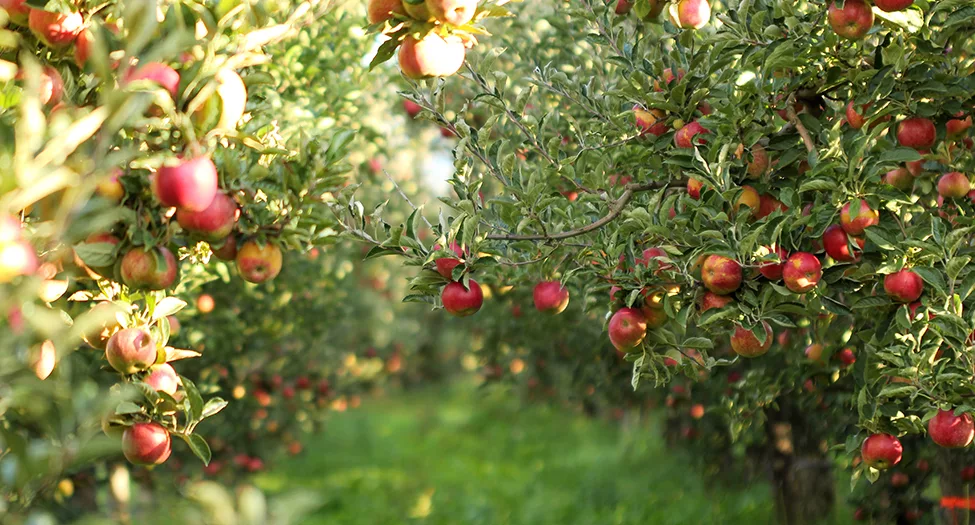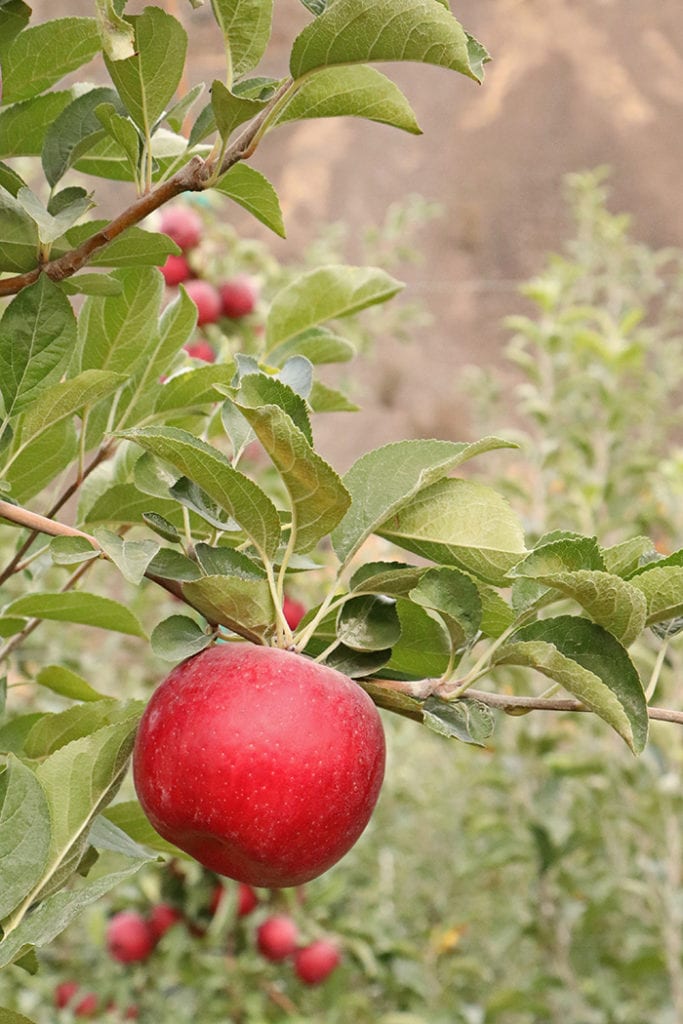
Home » Apple action: New variety coming as tariff threats loom
Apple action: New variety coming as tariff threats loom

June 12, 2019
As the state’s apple growers
strategize to overcome international tariffs, they’re also looking ahead to
introduce to the world a highly-anticipated variety — the Cosmic Crisp.
The
end of the 20 percent tariffs on apples shipped to Mexico in mid-May was welcome
news to the state’s apple industry, which saw overall exports down 32.7 percent
over the previous season. But more retaliatory tariffs loom.
“We
are facing tariff situations in our top apple markets,” said Toni Adams,
spokeswoman for the Washington Apple Commission. This includes Mexico, where
more Washington apples are sent than any other country worldwide.
Mexico
leveled a 20 percent tariff on Washington apple imports in June 2018 in
response to a 25 percent tariff placed on steel and aluminum products brought
into the U.S. from Mexico. It amounted to a hefty blow, as Mexico averaged a
demand of 13 million boxes of fresh Washington apples annually in recent years.
Apple
exports still face a 50 percent tariff in China, and India is threatening 25
percent tariffs.
The
potential for new import taxes on apples also sent to Canada is something Adams
called “intimidating.” The country is the second-largest importer of
Washington’s fresh apples, and considered an extension of the domestic market
due to its proximity. Our neighbor to the north is Washington’s largest export
destination for organic apples.
As
demand increases, growers in the state produced about 16 percent more organic
apples than the previous year.
As
the industry depends on international trade, a dozen people around the world
are focused on marketing Washington apples. With 2019’s projected apple crop
forecast to come in 12 percent lower than last year’s and recent exports to
Mexico down 29 percent, the industry has cause for concern.
“We’re
not sure if the reason is just crop volume or because of the tariffs,” Adams
said.

Knowing
that retaliatory tariffs are being placed on apples following U.S. actions
against other countries, the federal government handed out money to groups like
the Washington Apple Commission to help promote the fruit.
The
commission received $8.4 million from a total of $200 million in available
grants.
This
was part of an Agricultural Trade Promotion program from the U.S. Department of
Agriculture designed to mitigate harm to the industry. The money is considered
a one-time, non-renewable allocation.
Adams
said the grant program is “pretty rigid” on how the money can be spent, as it
was approved based on the market it’s intended for and also by individual
activity. The commission will use some through a market facilitation program
that includes direct payments to farmers and also a buyback program to give
apples to schools.
In
growing markets, the commission will use the grant to increase consumer
advertising, with a goal of building on the reputation of U.S. products being
“healthy and safe,” especially to customers in southeast Asia.
The
grant money will be distributed to the commission in 2019 and spending is
expected to be spread out over two years.
One
of its uses will be to market the highly-anticipated Cosmic Crisp apple
variety, which is set to be released in fall 2019.
It
is a new variety of apple created and patented through Washington State
University’s apple breeding program.
The
apples will be harvested in late September and early October but won’t arrive
at stores until Dec. 1.
“Cosmic
Crisp tastes better when it sits for a while,” said Kathryn Grandy, spokeswoman
for the company hired to promote the new apple. “It’s harvested at one starch
level and then shipped at another starch level.”
Grandy
said the current target date is considered “conservative,” and it’s possible
the apple could ship sooner once it’s re-evaluated after harvest. “We want to
make sure it’s the best it can be,” she said.
The
apple is described as “remarkably crisp, sweet, sharp, tangy and unbelievably
juicy.” It is a cross between the Enterprise and Honeycrisp varieties and
promised not to brown easily.
The projection for available boxes of Cosmic Crisps is
500,000 in the first year, Grandy said. Adams expected most of those apples to
be gobbled up by domestic demand before another two million boxes are expected
to go on the market the following year for apples harvested in fall 2020, with
a whopping 17 million boxes grown in five years’ time.
As
a means of extending the apple’s dominance right from the start, Grandy said
it’s “far more than just major retailers who have been sent samples” to build immediate
interest in the fruit.
Part
of the federal grant money awarded to the apple commission also will be used for
sampling Cosmic Crisp in the Canadian market, where it’s expected to take off
by spring 2020.
Adams
said the process to develop the new variety has been “unprecedented,” so the
actual volume and demand are unknown factors. Washington growers have the
exclusive license for the first 10 years.
Despite
the growing excitement for a new apple, the Red Delicious variety still reigns
supreme for global apple demand.
“It’s
definitely an export-heavy variety as part of many gifting traditions,” Adams
said. “Red Delicious are always going to be a popular variety that people rely
on for its shape and color.”
India,
in particular, is a big importer of the variety. Of the eight million
Washington apples shipped to India last year, seven million were Red Delicious.
As the state’s top apple, Red Delicious accounted for a quarter of the state’s
total apple shipment in the 2017-18 growing season, followed by Gala apples at
23 percent. This amounts to about 1.3 billion pounds of Red Delicious apples,
filling 33 million boxes.
This
season’s entire crop is projected at 118 million boxes, with about 40 pounds to
a single box. The crop is down slightly from the previous season’s 133 million
boxes. About 1,300 growers in Washington are responsible for 3 percent of apple
production across the globe.
Adams credits the “ideal environment” found in Washington
for the success of its apple industry, citing a dry, arid climate that keeps
pests down, combined with nutrient-rich soil, a strong water supply and
“progressive” growers.
Two
out of every three apples produced in America are grown in Washington. While
about a third of the fresh apples grown in the state are shipped out of the
country, this still accounts for about 90 percent of all U.S. apple exports.
Adams calls international trade a “crucial” component of the success of the industry,
with worldwide distribution helping to stabilize the domestic supply and
demand.
Still,
there remains a marketplace described as “highly competitive,” and Adams
emphasized the continued mission of the apple commission to market the fruit,
despite the trade threats, as a vital key to its continued success.
Agriculture + Viticulture
KEYWORDS focus agriculture viticulture 2019





